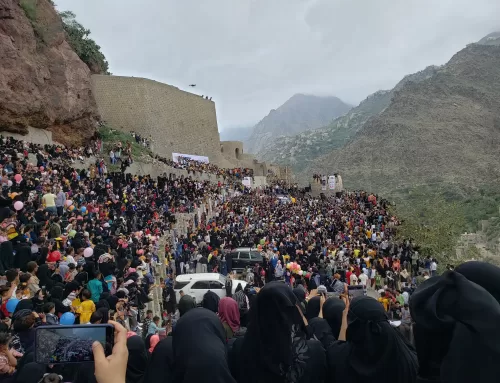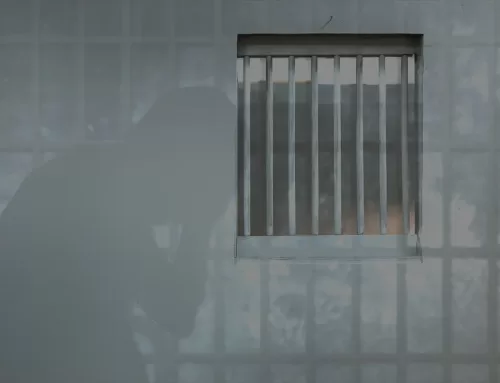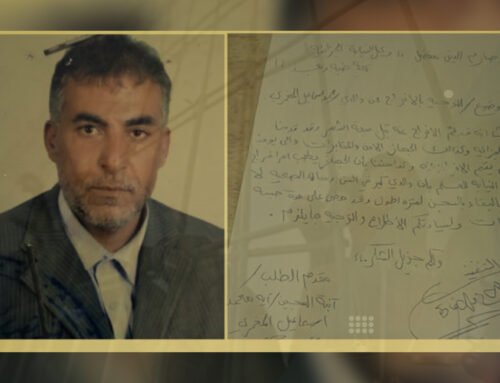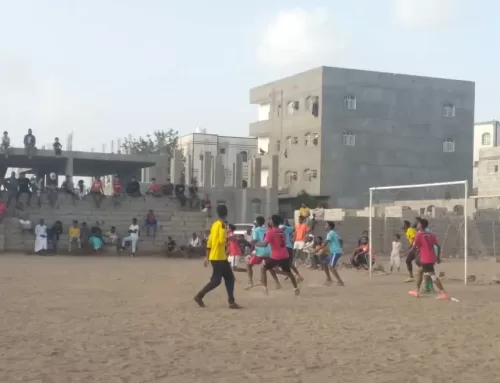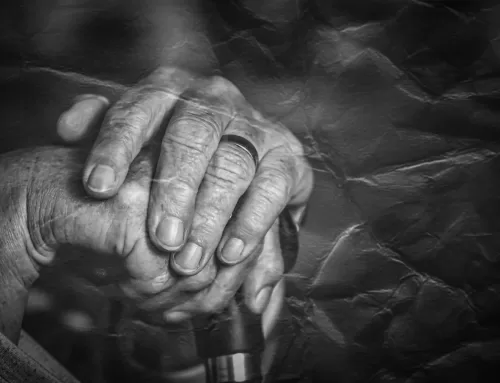Marib… in the midst of two disabilities
February 17, 2022
Marib Abdo is a 29-years-old man with disability from Al-Barashi area in Maqbnah District of Taiz Governorate. In 2010, Ma’rib decided to move to Saudi Arabia for work when he was 18 years old. A dream he had had since childhood.
He was inspired to do so by the financial strength of the expatriates in his neighborhood, who send money and gifts to their families on a regular basis. Marib, on the other hand, didn’t have a work visa or even a passport, so he used a less expensive method.
He contacted a human smuggler to help him in illegally crossing the Yemen-Saudi border. Their vehicle crashed with another vehicle on the way to the needed destination, injuring those on board. Marib was injured and rushed to the hospital.
Marib’s injuries were serious, affecting his spine. He became completely paralyzed and required years of treatment. Marib, as fate would have it, became disabled. After a months-long treatment, he was returned home. His mother assumed responsibility for his care and need. Years went by while his family endured a tough living situation.
In 2015, due to the deteriorating economic situation, Marib’s family decided to relocate from Al-Barashi to Hays District of Hodeidah Governorate, which is under the control of the 7th Giants Brigade of the Joint Forces, hoping that his father would find a job.
They couldn’t afford to rent a home, so someone offered them a free home. They moved in, but their living conditions remained tough, and Marib’s injuries added to his agony. Marib’s mother drove him in a wheelchair to the shadow of the home every morning for 10 years, where he could talk to his neighbors, who comforted him and took away his suffering.
On Monday, June 17, 2019, the mother, as usual, took her son out into the shade of the house. Marib’s father and his 4-years-old young niece were among the neighbors who were present. A water tank for the displaced was located a few meters from the front of the house.
Ma’rib’s mother took plastic jerry cans, and filled them with water from the tank. While she was taking the water-filled jerry cans home, a mortar shell landed next to Ma’rib and the neighbors who were there. The mortar shell was fired from the Northern area controlled by Ansar Allah (the Houthis). Ma’rib, his mother, father, niece and a neighbor were injured by shrapnel, as a result of which his mother and father died.
Ma’rib says,
“When the shell fell, my hearing was affected. I could see dust flying with smoke from the ground. I didn’t feel the pain of the shrapnel that entered my mouth and broke three of my teeth.”
“When the dust had faded, I saw my father on the ground bleeding. He was trying to get up, but he couldn’t. I saw my mother on the other side laying, while the water jerrycan was pouring on the ground. I was trying with my wheelchair to get to my father, who tried to crawl on his knees and hands, he couldn’t. I tried so hard until I reached my mother and fell off my wheelchair next to her. Then, we were taken to the hospital.”
Marib wished he could walk and move around to assist his parents. He had suffered so badly that the ambulance broke down and the tire was broken on the way to the field hospital in Al-Khokha district. If he did not die in the incident, this moment alone would be enough to leave him with psychological trauma for the rest of his life.
He says,
“When the ambulance broke down while we were on board, my suffering became unbearable, and I was on the verge of passing out.” After they were taken to a hospital in Mukha, Ma’rib was unaware that his parents had passed away. He stayed in the hospital and was informed that his parents were fine whenever he inquired about them. He fell and burst into tears when he learned of their death a week later.
Ma’rib had a disability for ten years, but he did not feel it as much as he did when he lost his parents and all doors of hope were closed in front of him.
He adds,
“When I learned of my parent’s death, all I could think about was who would look after me. I have a disability! Who is going to clean me? Who will take me outside into the shade of the house so I can breathe air other than the air in my room? Who? Who is it?”
He concluded, “I hated life after the death of my mother and father.”
Ma’rib dreamed of a better life abroad; he returned with a disability. He then dreamed of stability, he returned without his crutches (his father and mother). All left for him is the hours of waiting and tense existential questions to which he had no answers.


